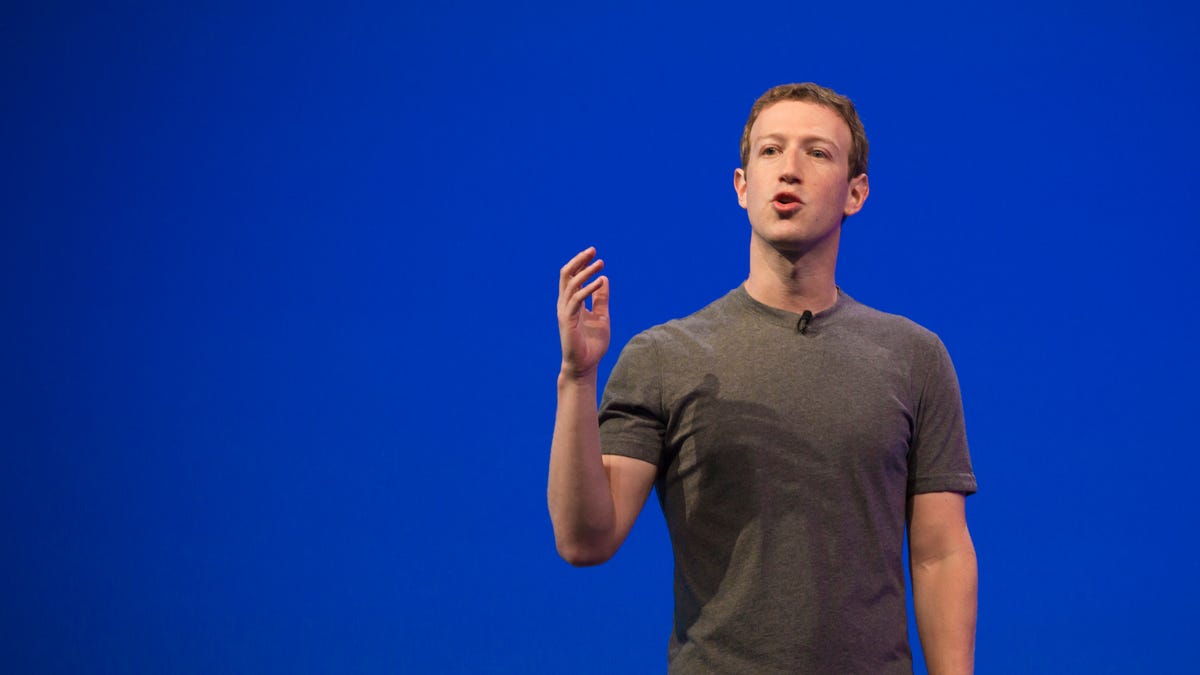Facebook doubles down on video as forecast worries investors
With new video features, the social network is preparing itself for the future. Still, investors are worried about the coming year.

Facebook CEO Mark Zuckerberg has made big investments in live video.
How do you convince more people to record themselves and post videos on your social network? If you're Facebook, you do it with scuba masks and pumpkins.
In the last few weeks, CEO Mark Zuckerberg has added new weapons to Facebook's online video arsenal. They include masks, which allow people to add digital images -- like scuba gear and pumpkins -- to their faces. The company is also testing new camera software in Ireland with more photo and video filters. Those videos and photos disappear after you and your friends stop commenting on them.
If those new features sound a lot like what Snapchat does, it's because they are. Facebook hasn't been shy about cloning the popular mobile app, which lets you string together videos and photos that self-destruct after a period of time.
There's an important reason for all that video investment. Facebook sees video as the future of its business.
Perhaps that future can't come quickly enough. During a conference call Wednesday to discuss third-quarter earnings, Facebook CFO David Wehner said advertising growth would slow and expenses would grow in the next year.
That unnerved investors, who sent Facebook's shares down 7 percent in after-hours trading.
But Zuckerberg assured them Facebook is anticipating the sea changes.
"Soon, we believe a camera will be the main way to share," instead of the traditional text box, Zuckerberg said during the call. "We think its pretty clear video is only going to become more important."
He added the camera features being tested in Ireland will also be coming to more countries. Zuckerberg boasted that Facebook is in a good position to become a video powerhouse because the company has the scale and computing power to make sure users can share and find videos with fewer technical stutters.
Facebook may be expecting slower growth, but it's still raking in money. The company racked up sales of $7.01 billion in the months ended September 30, beating analyst estimates of $6.92 billion. Profit, minus some costs, was $1.09 a share, compared with estimates of 97 cents per share.
Facebook also said its user base jumped to 1.79 billion people a month.
Another reason Facebook is so eager to try out live-streaming and Snapchat-like video features: Most of that stuff is done on phones. And mobile is Facebook's life blood.
In the third quarter, roughly 84 percent of the company's $6.82 billion in ad revenue came from mobile ads. The company also said mobile-only monthly users surpassed 1 billion people for the first time.
But it's video that's been the talk around Facebook for a while. The centerpiece in its strategy is Facebook Live, a service that went live widely earlier this year that lets you live stream video directly to Facebook. In the past few months, everyone from Hamilton cast members to the Donald Trump campaign has turned to Facebook to broadcast in real time.
But the focus on video has prompted some tough philosophical questions, like what Facebook should and shouldn't show.
In July, a Minnesota woman named Diamond Reynolds used the service to live-stream her fiance Philando Castile after he was shot by police. The next day, Facebook Live captured the scene as five Dallas police officers were gunned down during a peaceful demonstration.
Originally published at 1:22 p.m. PT.
Updated, 3:40 p.m. PT: Adds detail from Facebook's conference call with analysts.
Updated, 4:18 p.m. PT: Incorporates new quotes from conference call.

